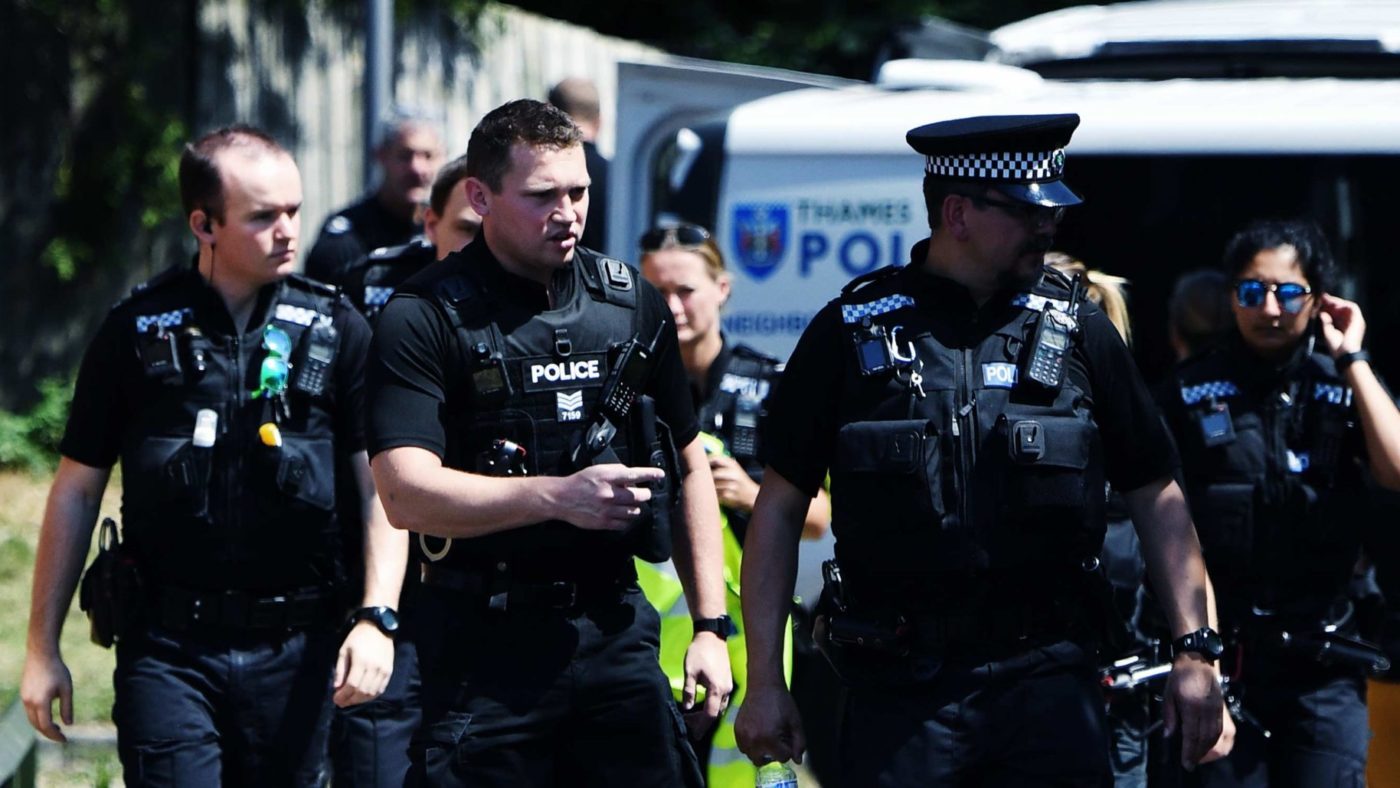Recent arrests and convictions have added weight to an official narrative that was already at pains to imply far-right extremism is equal to the threat posed by its Islamist counterpart.
On Tuesday, Ben Raymond was found guilty of membership of the Neo-Nazi group NS31. He was referred to as their chief propagandist, a grandiose title somewhat undermined by the detail that he propagated his race hate masterplan from a small flat above a dog groomers. On the same day police swooped on a man in Harwich, arresting him on suspicion of being involved in a far-right terror plot.
The courts have a number of people on trial for ‘acts preparatory’ to XRW terrorism and police have stated they are ‘extremely concerned’ about the number of children arrested for far right terror offences during the pandemic. The latest statistics from our ‘Prevent’ counter-extremism strategy show a majority of referrals emanating from professionals concerned about XRW extremism, overturning previous trends. There’s a lot to be worried about.
But that worry should extend to how the terror threat discourse is being shaped. No one could deny the obvious and growing sophistication of fascist ideologues and their clear desire to groom and recruit young people online. Bored and lonely kids living in their heads in their bedrooms through the Covid years, stripped of the protective shield of normal socialisation, are easy prey for abusers who use popular culture and comedy on various platforms, including gaming sites, to reel in potential recruits and begin a subtle process of indoctrination. So far, so bad.
But examining the glut of young people entering our preventative, then criminal justice processes reveals a preponderance of people who are surely more inadequate and deluded than dangerous. Whose ‘preparatory acts’ often range from building a hide in a woods to ‘hostile reconnaissance’ of radio masts. Whose sentences have included not hard time, but classical literature. The headline official Terrorism Act statistics don’t for some reason cross-reference sentence length with ideology, but if they did, my instinct is that they would show a revealing disparity.
The communities harbouring the racists and fantasists that the police are scooping up with increased regularity are comparatively easy to penetrate. NGOs such as Hope Not Hate have had huge success in dragging fascist organisations such as Patriotic Alternative into the sunlight and offering ways out for those ensnared. The toxic worldview of many of the young people drawn in is animated more by thwarted ambition than a desire (at least at first) to dehumanise others.
The obvious counter-argument to this position is that these are some of the precise antecedents to acts of mass murder carried out by Anders Breivik and Brenton Tarrant in Norway and New Zealand respectively. In both cases these men justified their terrorist acts in manifestoes or testimony that blamed their governments for failing to tackle the Islamist threat.
While we should never let our security policies be dictated by racist losers, it is worth repeating that the demonstrable terror threat to our security in the United Kingdom does come from Islamist extremists. The body count does not lie. The awful track record of successful lone actor and organised attacks and near misses is incontrovertible. It comes off as tin-eared at best when senior counter-terror police officers scramble to tell the country that far-right extremism is the serious threat, following two attacks by Islamists within a month that left an MP murdered in a church and almost led to an act of iconic desecration on Remembrance Sunday. Our national terror threat moving from ‘substantial’ to ‘severe’ was not prompted by a few depressed kids hunched over their laptops hoovering up QAnon conspiracies.
Equating the the far-right and Islamist terror threats also feeds a dangerous narrative that is weaponised by racists – that the establishment is too timid and politically correct to describe and deal with the clear and present danger Islamist extremism presents. ‘If not them, who?’ is a powerful and seductive rallying cry in the face of apparent official impotence. This is not helped by parliamentarians falling over themselves to suggest that the barbaric stabbing to death of Sir David Amess could primarily be cured by regulating online abuse.
We need above all to be able to sort out the people of any ideology who pose a real national security threat from those who clog up the system, distract resources and skew the discourse with psychological problems that would be better off dealt with by the NHS. We have to ask ourselves the uncomfortable question, framed by the criminologist Lucia Zedner: ‘Are we countering terror or criminalising curiosity?’ in the way we police and prosecute how young people use and are abused by the online world. Above all, we need to distinguish between the sad people who are easy to manipulate but mostly harmless and the bad people who act with their own malevolent agency. This conflation serves only as a convenient distraction for officials whose greatest concern seems to be avoiding offence.
While jail time for young people detected further and further upstream from actual extremist violence is politically palatable, in many cases these kids are being sent into chaotic, unstable environments where their commitment to violent extremism is likely to be reinforced as prisons divide increasingly on ethnic, ideological and gang-related lines. The imminent shake-up of the Prevent strategy expected from the William Shawcross review provides some hope of an opportunity to stop the mission creep that feeds the impression of a symmetrical threat. This disguise is dangerous. In the camouflage of statistics, the real predators continue their advance.
Click here to subscribe to our daily briefing – the best pieces from CapX and across the web.
CapX depends on the generosity of its readers. If you value what we do, please consider making a donation.


